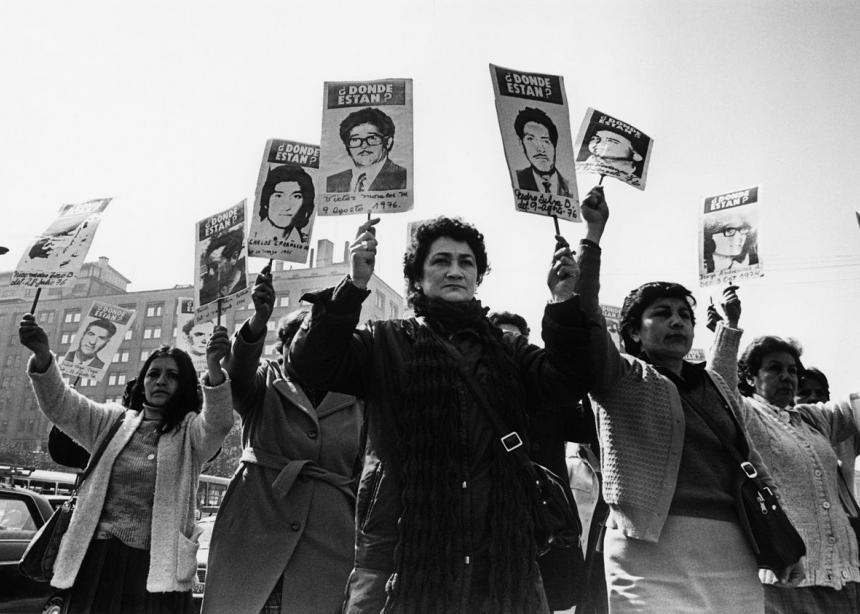Let's look at some of the online streaming videos available through the library, in this walk-through of Women's History Month titles from Films on Demand. Films on Demand is a free streaming service which provides great documentaries to our community. To watch more films like these titles, check out Films on Demand.
Women First and Foremost: Hosted by Academy Award-winner Rita Moreno and Dee Wallace Stone, Women First & Foremost offers shining examples of how generations of women have achieved their deserved place at the forefront of history. Brief sketches of notable women, such as Phillis Wheatley, Anne Bradstreet, Margaret Fuller, and Ruth Hale, are presented as a means to view cultural and social contributions, reform work, and political activity.
Lives Together, Worlds Apart: Drawing on case studies, this program exposes the "gender apartheid" that has led to the marginalization of women around the world through violence and poverty. Commentary by Kofi Annan, former secretary general of the UN; Festus Mogae, president of Botswana; and Margaret Jay, Britain’s minister for women, as well as by many grassroots leaders reveals the victimization that is occurring through educational neglect, unfair labor practices, spouse abuse, and inadequate reproductive healthcare. The positive effects of rural empowerment programs, battered women refuges, and free health and legal counseling are also presented—but will cuts in funding sweep away the good that these initiatives have done?
What I Want My Words to Do to You: In this classic program from the POV series, playwright Eve Ensler (The Vagina Monologues) leads 15 female inmates—most convicted of murder—through a series of exercises and intimate discussions, enabling them to delve into and expose their most terrifying realities as they grapple with the nature of their crimes and their own culpability. The documentary culminates in an emotionally charged prison performance of the inmates’ writings by acclaimed actors Mary Alice, Marisa Tomei, Glenn Close, Rosie Perez, and Hazelle Goodman.
The Kingdom of Women: In a remote corner of southwestern China are the Mosuo, arguably the best remaining example of a matrilineal society in the world today. In this program, anthropologist Chou Wah-Shan—one of few outside scholars who have lived and worked extensively with the Mosuo—and Mosuo villagers offer insights into what life is like in the 91 communities where women rule and husbands don’t exist.
Chile: From Drama to Hope: This program examines Chile under martyred socialist President Salvador Allende, and the subsequent Pinochet regime that followed. Allende’s niece and novelist, Isabel Allende, exile Hortensia Bussi, Nobel Prize-winning author Gabriela Mistral, and others discuss women’s role in the eventual toppling of Pinochet, and the formation of the Latin American Federation of Associations of Families of Prisoners Missing Since 1981—a tracking organization that helps families discover the fate of relatives kidnapped during the Pinochet reign of terror. The mothers, sisters, and daughters of "the disappeared" were instrumental in bringing the regime's horrors to international recognition.






 young son of a church deacon was staying at his father's country estate in western Britain when he was kidnapped and forcibly enslaved for six years as a Irish shepherd. For the worldly youth that he had been, though a nominal Christian,
young son of a church deacon was staying at his father's country estate in western Britain when he was kidnapped and forcibly enslaved for six years as a Irish shepherd. For the worldly youth that he had been, though a nominal Christian,  Hundreds of years after his death, Muirchu's account of Saint Patrick's life introduced apocryphal stories about New Testament apostles. Muirchu retold episodes from stories about Bartholemew, Peter, James (the brother of John) and Saint John the Evangelist with St. Patrick as their central character. The canonization of the real monk had begun. it is noteworthy that he draws attention to this activity as an important element of Patrick's impact on the Irish people. Stories like the Easter fire and banishing the snakes from Ireland begin to develop details never seen in Patrick's writings.
Hundreds of years after his death, Muirchu's account of Saint Patrick's life introduced apocryphal stories about New Testament apostles. Muirchu retold episodes from stories about Bartholemew, Peter, James (the brother of John) and Saint John the Evangelist with St. Patrick as their central character. The canonization of the real monk had begun. it is noteworthy that he draws attention to this activity as an important element of Patrick's impact on the Irish people. Stories like the Easter fire and banishing the snakes from Ireland begin to develop details never seen in Patrick's writings.  streets of New York City accompanied by Irish music. When a massive famine struck Ireland in the 19th century, and millions of Irish emigrated to a new world where they were subjected to discrimination,
streets of New York City accompanied by Irish music. When a massive famine struck Ireland in the 19th century, and millions of Irish emigrated to a new world where they were subjected to discrimination,  Today the U.S. celebration of the feast day is the jewel of Saint Patrick's Day, two hundred years after a massive immigrant movement brought its patron saint to the continent. Now new classes of immigrants embrace the
Today the U.S. celebration of the feast day is the jewel of Saint Patrick's Day, two hundred years after a massive immigrant movement brought its patron saint to the continent. Now new classes of immigrants embrace the 
![[a postage stamp featuring Dr. Seuss and many of his iconic characters]](https://libapps.s3.amazonaws.com/customers/2058/images/seuss-postage.jpg)